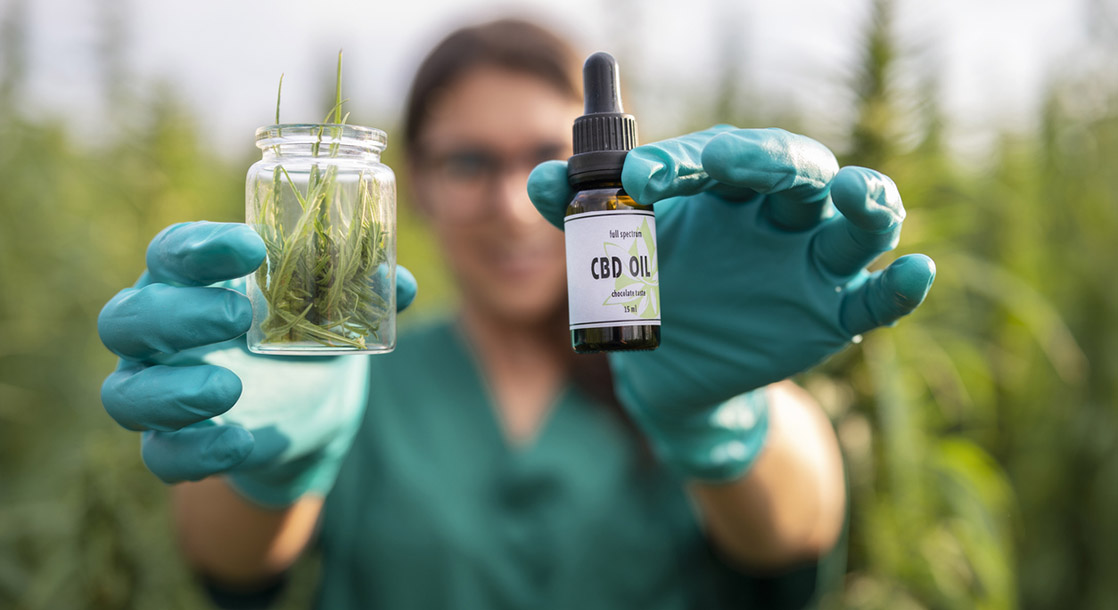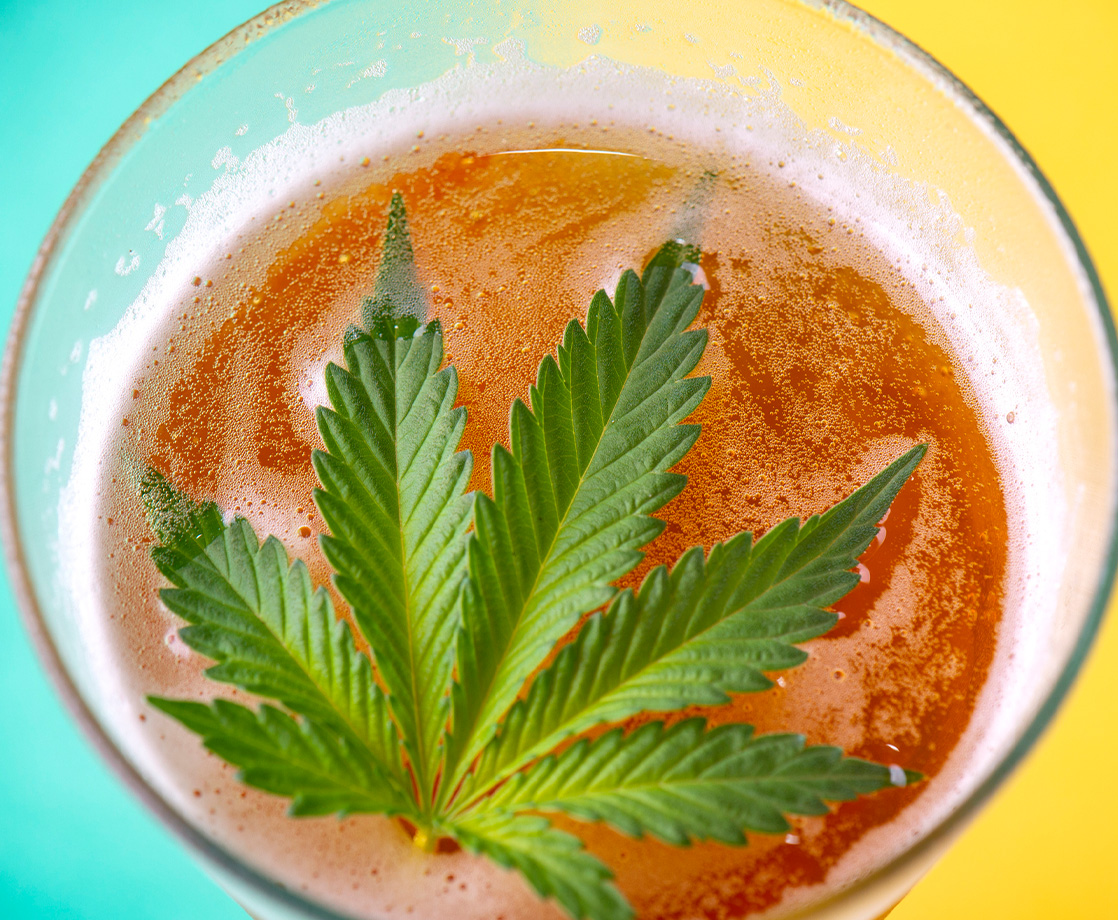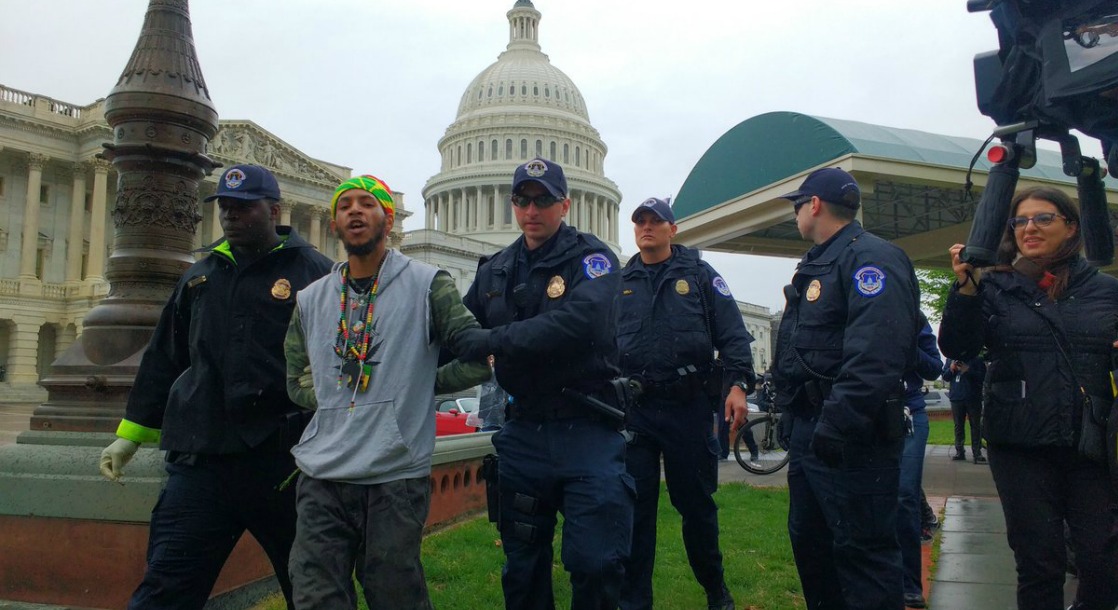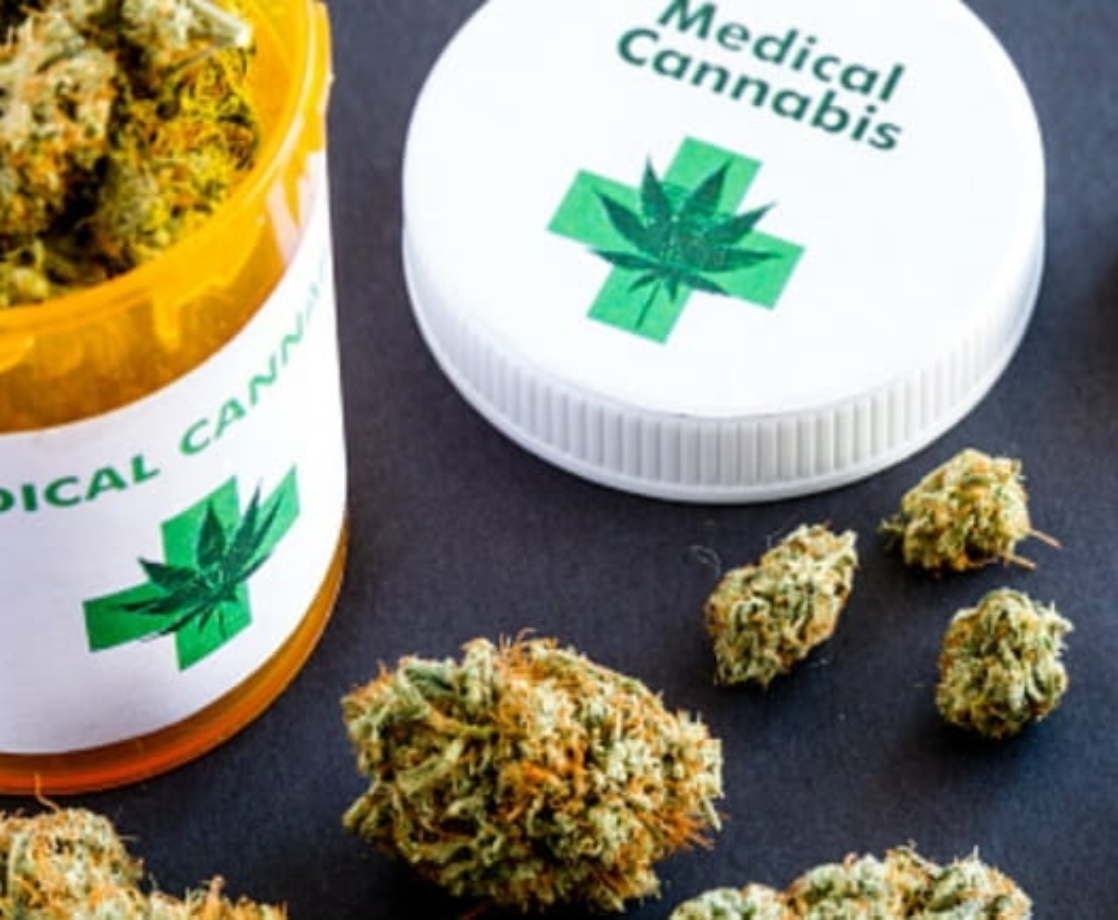Cover image via
A new study found that CBDA and CBGA, the acidic forms of CBD and CBG, respectively, may help prevent infection by SARS-CoV-2, the virus that causes COVID-19.
Two years into the COVID-19 pandemic, and we still have no cure. Even multiple vaccinations are no guarantee against catching the virus or spreading it, especially as the newer omicron variant surges worldwide. But new research from Oregon State University adds to a growing body of scientific knowledge that cannabis — or, at least, compounds produced by cannabis — may be able to treat or reduce infection rates of SARS-CoV-2.
How could weed prevent COVID-19, though? The researchers discovered that CBDA and CBGA can bind to the virus’s spike protein. The spike protein helps the virus attach to cell receptors, giving the virus access to the cell’s inner universe, where it can hijack the cell’s DNA to produce more viruses. The researchers suggested if CBDA and CBGA can bind to the spike protein, that could effectively block the virus from being able to enter the cell. No entry means no infection, and bye-bye COVID.
“These compounds can be taken orally and have a long history of safe use in humans,” said the study’s lead researcher, Richard van Breemen, according to Forbes. “They have the potential to prevent as well as treat infection by SARS-CoV-2. CBDA and CBGA are produced by the hemp plant as precursors to CBD and CBG, which are familiar to many consumers. However, they are different from the acids and are not contained in hemp products.”
It’s that last part, “not contained in hemp products,” which brings us to the biggest caveat regarding this latest research. So, before you spark up a massive hemp joint so you can attend that mask-optional concert, read on.
First, this study wasn’t a clinical trial, so the study didn’t show that CBDA or CBGA could actually prevent COVID-19 infection. Rather, they used some chemistry equipment to determine if these compounds could bind to the viral spike protein, which they did demonstrate. Whether their experiment actually translates into the real-world of the human body will require additional research.
Second, sparking up a hemp joint or dabbing some CBD wax probably won’t help, either. CBDA and CBGA are the acidic forms of CBD and CBG, respectively. Using heat to combust or vaporize these compounds will decarboxylate them — in other words, heat will remove the acid portions of these molecules, which appear necessary for binding to the viral spike. That’s why van Breeman said the compounds should be taken orally rather than inhaling them through your bong, which you probably haven’t cleaned since the pandemic started.
Third, not all chemovars are created equal, and there’s a good chance that pot-shop weed will contain practically zero CBDA or CBGA. And even if you did find a strain with ample amounts of either compound, you can’t entirely trust lab testing for hemp or weed, as they’re tested in batch samples and may not accurately reflect what’s in your store-bought bottle.
Ideally, if this all pans out to be true, and CBDA and/or CBGA alone can prevent or treat COVID-19, a company would create a cannabis-derived edible or pill containing therapeutic amounts of these compounds. They’d be carefully tested, since this edible or pill would be a medical product and not one for “recreational” or adult-use.
The Oregon State University study isn’t the first one to suggest cannabis could treat or even prevent COVID-19, either. Previous (and often non-peer-reviewed) research has found that cannabis compounds, or other drugs that can target CB receptors, may be able to halt the virus’s ability to infect people or replicate in the body. In 2020, Israeli medical researchers performed clinical trials to see if cannabis products could treat COVID-19.











